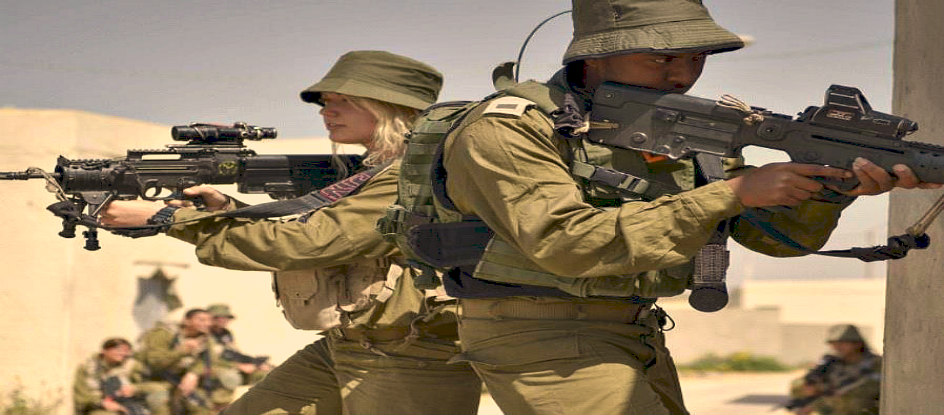An IDF decision to lower standards for women in combat units not only disparages feminism, it also hurts Israel’s combat readiness

The Israel Defense Forces (IDF) announced this week that it would ease the basic training requirements for female soldiers in mixed combat battalions – battalions in which female and male combat soldiers serve side by side. So, from now on, women applying for the Caracal, the Jordan Valley Lions and the Cheetah Battalions will no longer have to endure the traditional obstacle course test in which the male soldiers scale a wall that female soldiers scale with the help of a bench. It will be removed all together. Another measure announced was that female combat soldiers would be allowed to carry just 4 rifle magazines in their tactical military vest, compared to the customary 6 magazines male soldiers carry. This, so they can carry less weight than their male counterparts, making it easier for the women to perform military duties.
Now, before feminists cheer and rush to praise the IDF measures for easing requirements on women as some bold step in making combat units more accessible to them, perhaps we should first ask ourselves what is the true meaning of feminism? Does feminism mean the easing of standards and the lowering of the threshold on conditions for women? Or rather, would it not be more in line with the feminist ideal to have the IDF open all the ranks to female applicants so women can prove that they are equal to men and are capable of meeting the standards that are required of every combat soldier in the army?
As a woman who served as a combat soldier and as one who was happy over the integrating of females into combat units in the IDF, I think that true equality is not a product of the lowering of the threshold conditions. Equality comes from having the same requirements applied and opening up the selection procedures in all combat units to women so that those who can meet the requirements, will be accepted.
Not all men have the physical strength to pass the entry tests for elite units. This is no less true for women as well, though some may certainly posses those abilities. While it is true that women and men do not have the same physical abilities, if there are women who can withstand the tests, then they should be accepted.
This supposed revolution in the thinking of the IDF is no less than an IDF statement concluding that women cannot reach the same level of combat eligibility as men and therefore, all the battalions involved will be compromised. This means that the gender mixed battalions are downgrading from combat able infantry battalions to inferior level battalions. The IDF is in effect declaring that the battalions that have women are inferior in their combat abilities. This is not a testimony of equality between male and female soldiers. This is also a very dangerous blow to the combat readiness of the IDF in vital sectors.
The IDF has already declared that a combat soldier in non gender-mixed battalions (Golani, Givati, Paratroopers, Artillery or Armored Corps) will be considered an “advanced” combatant while a combatant in the mixed battalions will be simply marked as a “combatant.”
This means that Border Police officers (where men and women serve together), for example, who today serve the front lines in the most volatile areas in Judea and Samaria, East Jerusalem and any where else one finds friction, are rated below the average artillery fighter.
Is this the equality we wished for as women who demand equality? This downgrading of requirements and standards does not project a lot of respect for the fighters or battalions who wanted to accept women among their ranks, it only diminishes their prestige.
As an army that prides itself in bringing female fighters into its ranks as early as 1995, before anyone else in the world thought about doing so, we must maintain high standards and understand that feminism and true equality is to fight and succeed in the toughest sectors, no different than what the men do.
Lital Shemesh is an Israeli Journalist and serves in the Israeli Border Police in the reserves.




I belive the arthur is correct. Lowiering standards is now the answer. Just opening up availability to try out for a position and letting all participant succeed or fail based on the same criteria just makes sense. If there are 500 people in a battalion and 100 of them are women that are slower, less aigile, or have less endurance…then having 25% of the manpower slowing the group down..or even worse…haveing to worry about them…is a recipe for disastor on the battlefield.